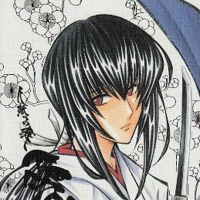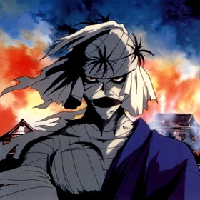Saitō Hajime MBTI 성격 유형
인격
"Saitō Hajime은 어떤 성격 유형입니까? Saitō Hajime은 mbti의 ISTJ 성격 유형입니다. enneagram의 1w2 - sx/so - 163, big 5의 RCOEN, socionics의 LSI입니다."
Finally, my favorite ISTJ character ever. Let's analyze. Part 1— MBTI Analysis (ISTJ): 1. Dominant Si: Saito's "Aku Soku Zan" is a deeply internalized, unshakeable code that he developed and refined through his past experiences as a Shinsengumi captain rather than just being a philosophical idea. An ISTJ's dominant Si leads them to rely heavily on their past experiences and established methods. For Saito, the chaotic Bakumatsu era and his role in the Shinsengumi provided the "data" that formed his absolute conviction in "Slay Evil Instantly." He doesn't invent new ways of dealing with evil; he applies his proven, internalized method. That's why we see him never adding much variance to his Gatorsu because he believes that Gatorsu is already perfect enough. Saito is a keen observer, often picking up on practical details and discrepancies (For example: How many exact hits Kenshin got in his fights against Rajutha, and that other character). His analytical mind, though outwardly expressed, is fed by a detailed, concrete understanding of reality built from experience. He trusts what he has personally verified or observed. 2. Auxiliary Te: Te is very apparent in Saito's decisive actions and his pragmatic approach. It serves his dominant Si. His desire to impose order and eliminate evil efficiently is a means to uphold his internal Si-driven principles. He uses logic and organization to carry out the "Aku Soku Zan" in the external world. His Te is strong, but it's fundamentally directed by his deeply held, established convictions. He's not necessarily driven by the need to be in charge or organize everyone else's lives (like a typical ESTJ). Rather, he's concerned with ensuring that his logical method of dealing with evil is executed effectively. He'll take charge if necessary to achieve this, but it's in service of his internal code. 3. Tertiary Fi: His loyalty to his men, his quiet respect for Kenshin, and his refusal to settle their rivalry once Kenshin abandons killing all stem from Fi’s internal value consistency. For instance, Saitō’s adoption of Eiji (the boy who lost his family) reveals that beneath his iron logic is a deeply personal sense of justice, one that doesn’t rely on societal approval. He doesn’t save Eiji out of mercy or showmanship because it wasn't his duty to adopt him, but out of an inward code of fairness that his Fi refuses to betray. Later, Eiji grew up as a mature man who always looks up to Saito. He stands in the grey area because the narrative itself validates his existence. He is the dark reflection of Kenshin, the reminder that the world is not black and white, and that the dream of a peaceful world is sometimes built and defended by men who are willing to get their hands dirty with blood, and feel no regret for it. 4. Inferior Ne: Saito is typically dismissive of idealism, abstract concepts, or anything that isn't grounded in concrete reality or proven by experience. Kenshin's more idealistic "protecting the innocent without killing" or abstract notions of atonement often clash with Saito's pragmatic, fact-based worldview. This discomfort with or undervaluation of possibilities and theoretical alternatives is a sign of inferior Ne. He prefers the tried and true.
전기
Saitō Hajime is the former captain of the third unit of the Shinsengumi, a hitokiri, and currently a special agent for the Meiji Government's Department of Internal Affairs. Having a long-standing rivalry with Himura Kenshin since their days on opposite sides of the Bakumatsu, Saitō nevertheless holds a begrudging respect for the rurouni and has come to his aid on assignment more than once, acting as a ruthless ally and the voice of cynical reason in the Kenshin-gumi's major battles. He adherently lives by the Shinsengumi code "Aku Soku Zan" (悪即斬, rendered as "Swift Death to Evil"). He believes in peace and order. Throughout the series, to uphold this new peace, Saitō has often been shown as the foil of Kenshin who walks and carries out his duties in the shadows of society in his own way; following his lifelong code of purpose with devotion, Saitō is the man who does the necessary dirty work, killing off those he considers to be corrupt, in the honor of his country.
인격 correlate

Himura Kenshin

Tomoe Yukishiro

Kaoru Kamiya

Makoto Shishio

Sanosuke Sagara

Sojiro Seta

Hiko Seijūrō

Hitokiri Battousai
















